10 Best Herbal Teas For Tooth Decay

Herbal teas have been traditionally used for their potential benefits in oral health, including the prevention of tooth decay.
Certain herbs like chamomile, licorice root, and green tea contain compounds that may help reduce plaque and inhibit the growth of harmful bacteria in the mouth. These natural remedies can support remineralization of teeth by promoting the uptake of minerals such as calcium and fluoride. However, while herbal teas may complement dental hygiene routines, they should not replace professional dental care or fluoride treatments.
It is important to consult with a dentist before relying on herbal teas as a primary method for preventing tooth decay.
Table of Contents
- 1. Salvia (Salvia officinalis)
- 2. Eucalyptus (Eucalyptus globulus)
- 3. Black pepper (Piper nigrum)
- 4. Ceylon cinnamon (Cinnamomum verum)
- 5. Peppermint (Mentha piperita)
- 6. Turmeric (Curcuma longa)
- 7. Dog rose (Rosa canina)
- 8. Fennel (Foeniculum vulgare)
- 9. Garlic (Allium sativum)
- 10. Oregano (Origanum vulgare)
1. Salvia (Salvia officinalis)

Salvia officinalis, commonly known as sage, has been traditionally used in herbal teas for its potential benefits in oral health, including the prevention of tooth decay.
The plant contains compounds such as flavonoids and phenolic acids, which exhibit antimicrobial properties that can inhibit the growth of bacteria like Streptococcus mutans, a primary contributor to dental caries. Regular consumption of sage tea may help reduce plaque formation and promote a healthier oral environment. However, while some studies suggest its efficacy, more clinical research is needed to fully establish its role in preventing tooth decay.
As a natural remedy, sage tea can be a complementary addition to a comprehensive dental care routine.
2. Eucalyptus (Eucalyptus globulus)
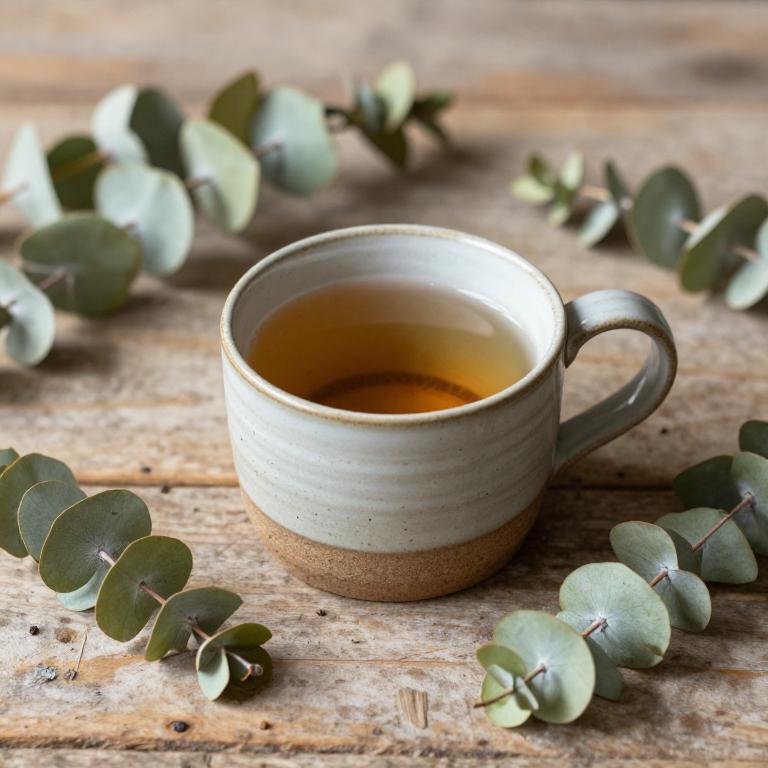
Eucalyptus globulus, commonly known as the Australian eucalyptus, is often used in herbal teas for its potential benefits in oral health.
The essential oils found in eucalyptus globulus, particularly cineole and limonene, have antimicrobial properties that may help reduce the presence of bacteria responsible for tooth decay. Studies suggest that these compounds can inhibit the growth of Streptococcus mutans, a primary contributor to dental caries. However, while preliminary research is promising, more clinical trials are needed to confirm its efficacy as a standalone treatment for tooth decay.
As a complementary remedy, eucalyptus globulus herbal teas may support overall oral hygiene when used alongside proper dental care practices.
3. Black pepper (Piper nigrum)
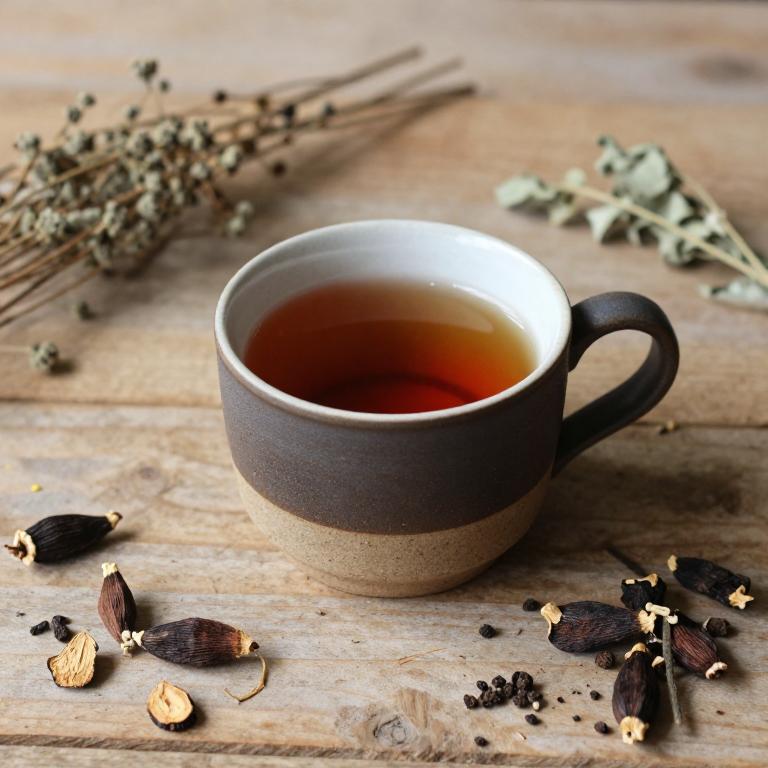
Piper nigrum, commonly known as black pepper, has been traditionally used in herbal teas for its potential health benefits, including support for dental health.
The essential oils in black pepper, such as piperine, possess antimicrobial properties that may help reduce the growth of bacteria like Streptococcus mutans, which are commonly associated with tooth decay. When brewed into a tea, these compounds can be consumed orally, potentially helping to neutralize acid production in the mouth. However, while some preliminary studies suggest possible benefits, more research is needed to confirm its efficacy in preventing or treating tooth decay.
As with any herbal remedy, it is advisable to consult a dentist or healthcare professional before using black pepper tea as a dental treatment.
4. Ceylon cinnamon (Cinnamomum verum)
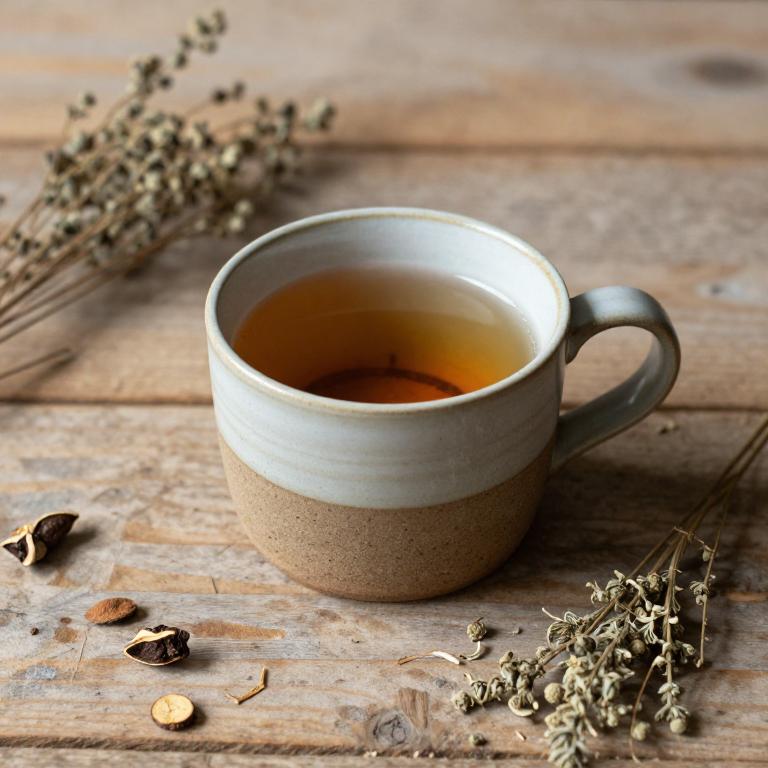
Cinnamomum verum, commonly known as true cinnamon, has been traditionally used in herbal teas for its potential benefits in preventing tooth decay.
The essential oils found in cinnamon, particularly cinnamaldehyde, possess antimicrobial properties that can inhibit the growth of bacteria like Streptococcus mutans, which are major contributors to dental plaque and cavities. When consumed as a herbal tea, cinnamon may help reduce oral bacteria and promote a healthier oral environment. However, it is important to note that while cinnamon tea may offer some supportive benefits, it should not replace proper dental hygiene practices such as brushing and flossing.
Regular consumption of cinnamon tea, combined with a balanced diet and professional dental care, can contribute to overall oral health and potentially reduce the risk of tooth decay.
5. Peppermint (Mentha piperita)

Mentha piperita, commonly known as peppermint, is often used in herbal teas for its refreshing and therapeutic properties.
While peppermint tea is primarily appreciated for its digestive and calming benefits, some studies suggest it may have antimicrobial properties that could help reduce bacteria associated with tooth decay. The essential oils in peppermint, such as menthol, have been shown to inhibit the growth of certain oral pathogens, potentially supporting oral health. However, it is important to note that peppermint tea should not replace conventional dental care, as it does not directly remineralize enamel or treat existing cavities.
Incorporating peppermint tea into a daily routine may complement oral hygiene practices but should be used in conjunction with regular brushing, flossing, and professional dental check-ups.
6. Turmeric (Curcuma longa)

Curcuma longa, commonly known as turmeric, has been traditionally used for its anti-inflammatory and antimicrobial properties, making it a potential natural remedy for preventing tooth decay.
The active compound in turmeric, curcumin, helps reduce bacterial growth in the mouth, which is a primary cause of dental caries. Herbal teas made from turmeric can be consumed daily to support oral health by inhibiting the formation of plaque and reducing gum inflammation. However, it is important to note that while turmeric may complement dental hygiene routines, it should not replace regular brushing, flossing, or professional dental care.
Overall, turmeric tea offers a natural, flavorful option that may contribute to maintaining healthy teeth and gums when used as part of a balanced oral care regimen.
7. Dog rose (Rosa canina)

Rosa canina, also known as rosehip, is a traditional herbal remedy that has been used for centuries for its rich content of vitamin C and other antioxidants.
While it is commonly consumed as a tea for its immune-boosting properties, some studies suggest that it may have potential benefits for oral health due to its anti-inflammatory and antimicrobial effects. These properties may help reduce the risk of tooth decay by inhibiting the growth of harmful bacteria in the mouth. However, it is important to note that rosa canina tea should not be considered a substitute for professional dental care or conventional treatments for tooth decay.
Incorporating rosa canina into a balanced diet and oral hygiene routine may support overall dental health, but further research is needed to confirm its efficacy in preventing cavities.
8. Fennel (Foeniculum vulgare)

Foeniculum vulgare, commonly known as fennel, has been traditionally used in herbal teas to support oral health and potentially prevent tooth decay.
The essential oils in fennel, particularly anethole, possess antimicrobial properties that can inhibit the growth of bacteria such as Streptococcus mutans, which are major contributors to dental caries. Regular consumption of fennel tea may help reduce plaque formation and neutralize acidic environments in the mouth, thereby protecting tooth enamel. While it is not a substitute for proper dental hygiene, fennel tea can be a complementary natural remedy for maintaining healthy teeth.
However, it is advisable to consult a healthcare professional before using fennel tea as part of a dental care regimen, especially for individuals with existing medical conditions or allergies.
9. Garlic (Allium sativum)
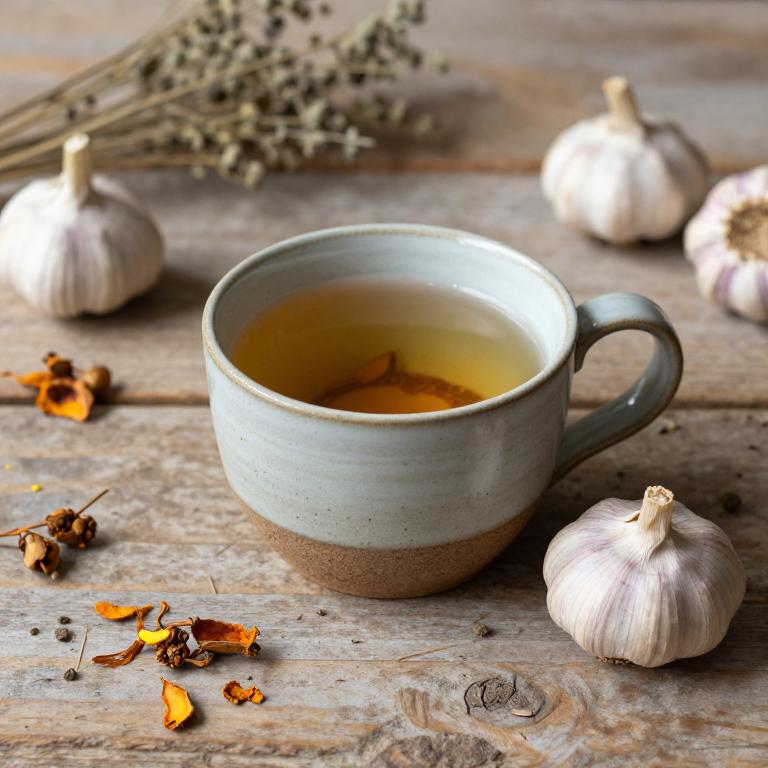
Allium sativum, commonly known as garlic, has been traditionally used in herbal remedies for its potent antimicrobial properties, which may help in preventing tooth decay.
When prepared as a herbal tea, garlic can help reduce the presence of harmful bacteria such as Streptococcus mutans, which are major contributors to dental caries. The allicin compound found in garlic is believed to inhibit bacterial growth and reduce plaque formation on teeth. However, while some studies suggest potential benefits, more research is needed to confirm its efficacy as a standalone treatment for tooth decay.
It is advisable to consult a dentist before using garlic tea as a complementary therapy for oral health issues.
10. Oregano (Origanum vulgare)
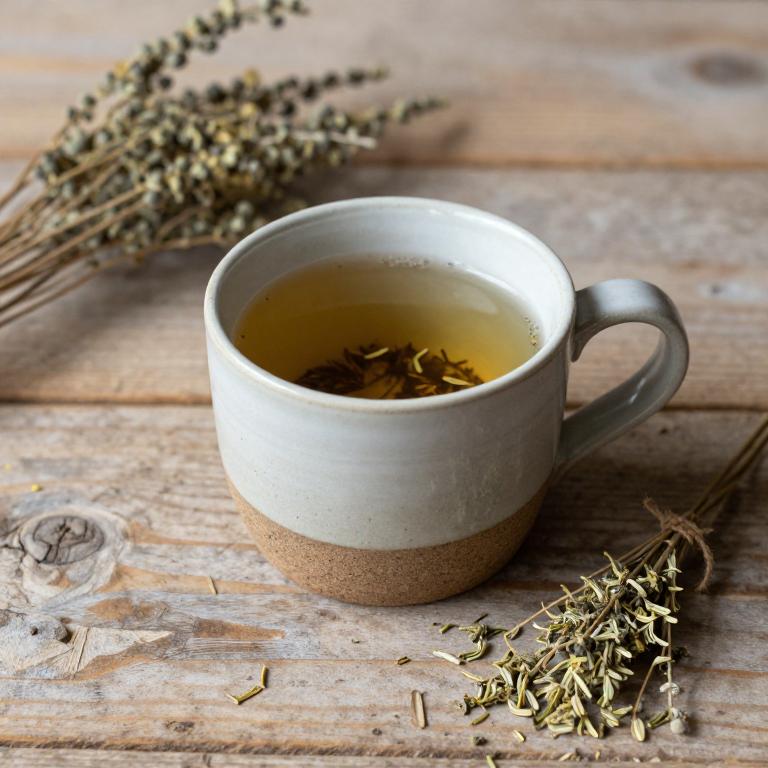
Oregano vulgare, commonly known as oregano, is a medicinal herb that has been traditionally used for its antimicrobial and anti-inflammatory properties.
Herbal teas made from oregano have shown potential in reducing the risk of tooth decay due to their ability to inhibit the growth of bacteria such as Streptococcus mutans, which are major contributors to dental caries. The active compounds in oregano, including carvacrol and thymol, have demonstrated effectiveness in disrupting bacterial biofilms on teeth. While oregano tea may not replace professional dental care, it can serve as a natural complement to oral hygiene routines.
However, it is important to consult with a healthcare provider before using oregano or any herbal remedy for dental issues, especially for individuals with existing health conditions or medication use.